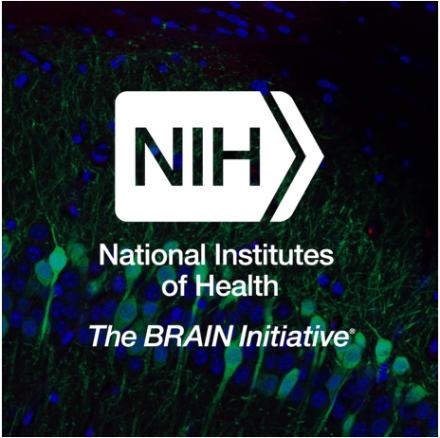NIH-funded breakthrough could enable targeted therapies for many neurological disorders.
News

BRAIN News Spotlight
Researchers Fully Map Neural Connections of the Fruit Fly Brain
NIH-supported milestone will advance understanding of brain processes in larger animals.
View Spotlight ArticleNIH-funded project helps unravel the brain’s wiring, giving clues to how we see the world.
Advanced bionic limbs could potentially tap directly into the brain to provide an artificial sense of touch. This would let people control and receive sensory feedback from robotic arms and hands, or even artificial limbs attached to a wheelchair instead of their bodies.
NIH-funded mouse study provides roadmap for how aging may alter brain cell genetic activity.
- Human Neuroscience
- Tools/Tech for Brain Cells/Circuits
NIH-funded brain mapping study uncovers which cell types may be harmed first.
- Human Neuroscience
- Tools/Tech for Brain Cells/Circuits
NIH-supported milestone will advance understanding of brain processes in larger animals.
- Dissemination
- Tools/Tech for Brain Cells/Circuits
An NIH MedlinePlus magazine feature interview with Dr. Walter Koroshetz, Director of the National Institute of Neurological Disorders and Stroke (NINDS). Dr. Koroshetz spoke about his passion for the brain, his path to NINDS, and how The Brain Research Through Advancing Innovative Neurotechnologies® Initiative, or the BRAIN Initiative®, is transforming how we understand the brain.
- Data Science & Informatics
- Dissemination
- Human Neuroscience
- Neural Recording & Modulation
- Neuroethics
- Neuroimaging Technologies Across Scales
- Systems Neuroscience
- Tools/Tech for Brain Cells/Circuits
- Training
A small feasibility study funded by the National Institutes of Health (NIH) found that an implanted device regulated by the body’s brain activity could provide continual and improved treatment for the symptoms of Parkinson’s disease (PD) in certain people with the disorder
- Dissemination
- Human Neuroscience
A new study, funded through the BRAIN Initiative and the NIH Common Fund’s Somatic Cell Genome Editing program, describes a promising way to carry genetic material into the brain to reach cellular targets.
NIH Director Dr. Monica Bertagnolli expresses deep appreciation for the contributions of Asian American and Asian Immigrant scientists to NIH's mission.
- Training
In the News
The BRAIN Initiative Alliance (BIA) aims to spread the word about BRAIN-funded scientific advancements. Visit the BIA website for up-to-date news coverage about the impact of BRAIN Initiative research.
The BRAIN Blog
The BRAIN Blog covers updates and announcements on BRAIN Initiative research, events, and news. Hear from BRAIN Initiative trainees, learn about new scientific advancements, find out about recent funding opportunities, and more.
